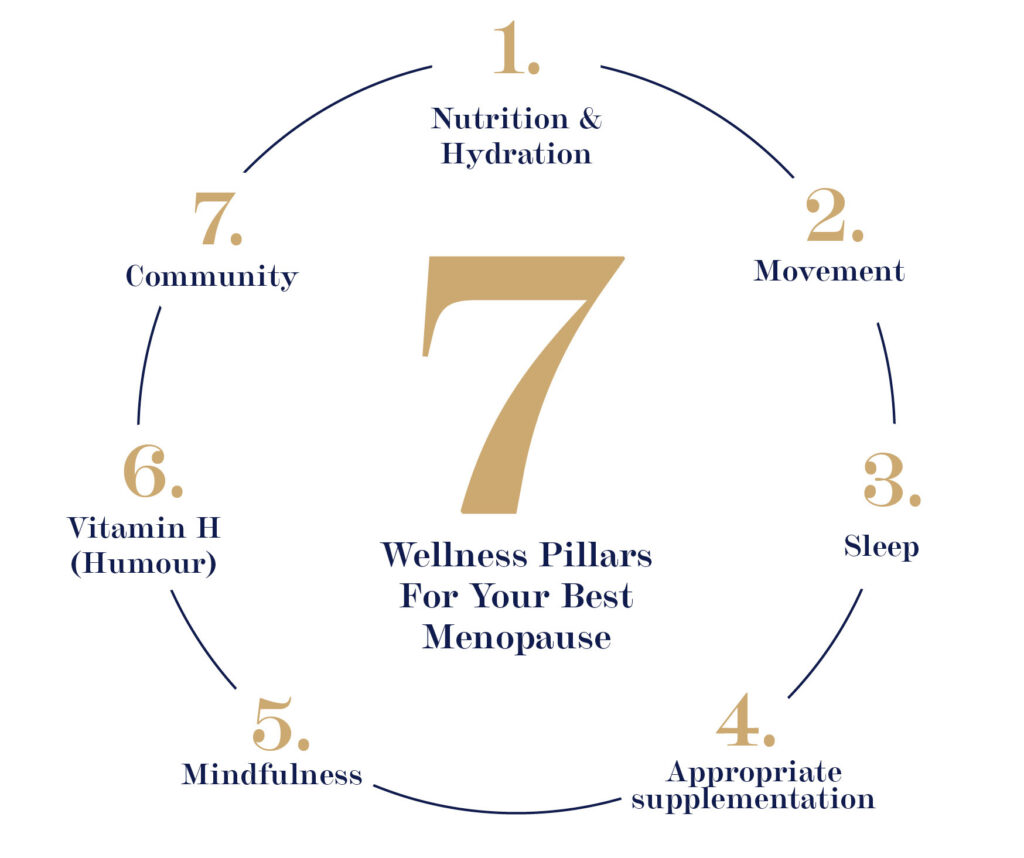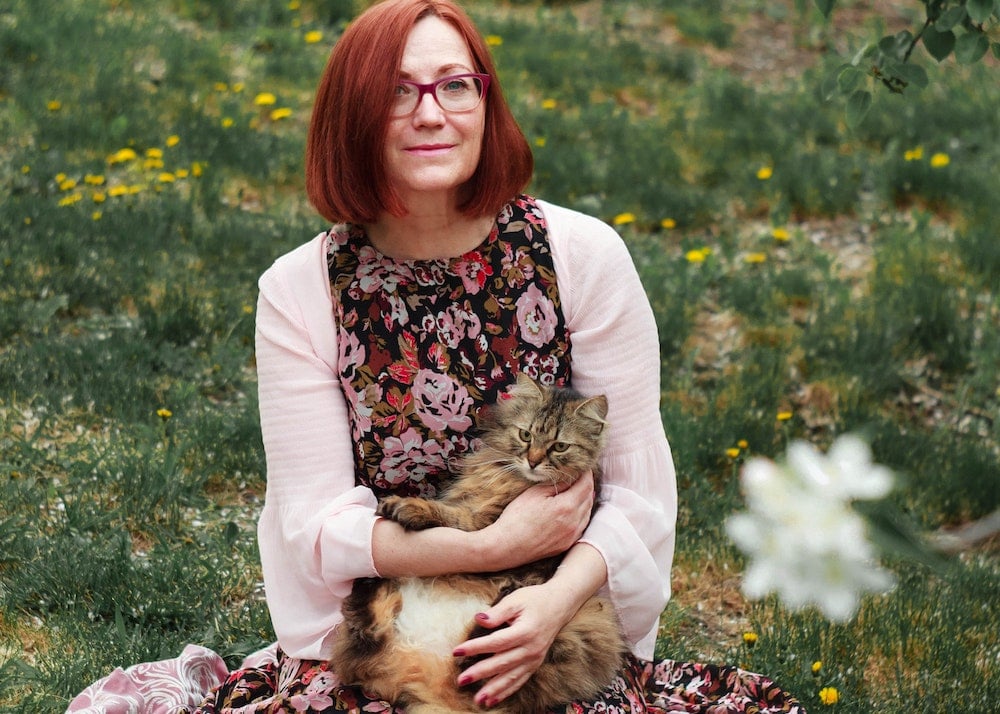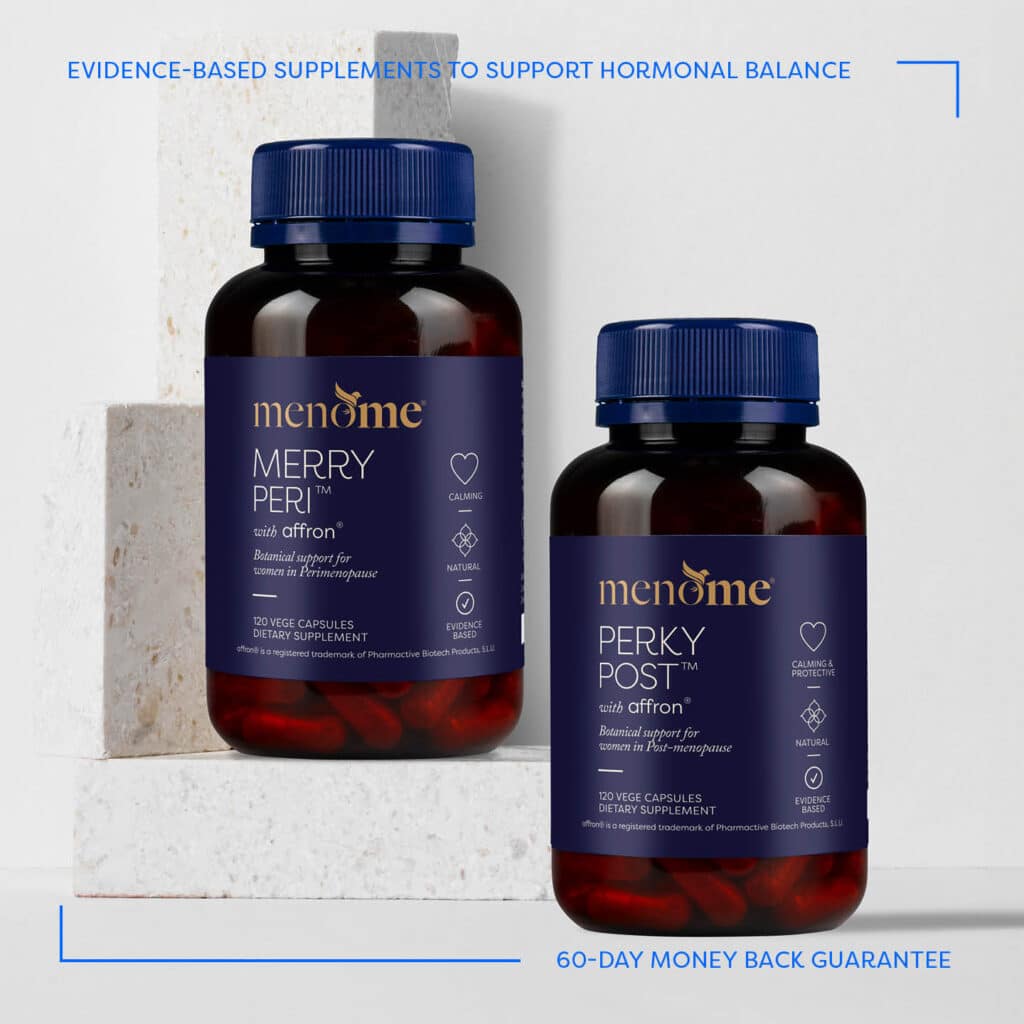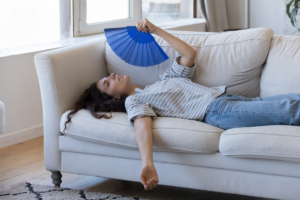Turning 50 heralds the beginning of a new life stage for women. Indeed, it’s the point when our fertile years come to an end, and we move on to the next phase.
And it’s also a time when we experience late perimenopause (peri meaning ‘around’) before transitioning into menopause and then post-menopause. Overall, it’s a journey! Just like puberty and pregnancy, this life stage usually involves big shifts. Often, the big 5-0 coincides with children leaving the home and empty nest syndrome. On the other hand, you could be looking after ageing parents, holding down a senior position at work or becoming more financially free and working less.
The average age of menopause/post-menopause
The average age for a woman to experience her last period is 51/52. There are actually no definitive tests to show when you’ve reached menopause at the time of writing.
Technically, menopause has occurred when 12 months have gone by since your last period. Therefore, you will only be aware you’ve reached it a year later. After this time, you will go on to spend the rest of your life in post-menopause.
NB: We’re talking about natural menopause and averages here. Every woman’s experience is unique and some will experience medically-induced menopause at an earlier age.
A word about blood tests for menopause
Experts consider blood tests to be of little diagnostic value for menopause due to their unpredictable variability. Indeed, the Australasian Menopause Society recommends GPs use a ‘symptom score’. “Blood tests can fluctuate on a daily basis and are therefore not useful or necessary,” they state. However, they do say blood count, iron level, ferritin and/or thyroid testing is useful to rule out other conditions that may mimic menopause. It’s also important to be aware that everybody is different and doctors may suggest blood testing for other reasons.
One thing’s for sure
There’s a myriad of changes that occur for most women after they turn 50.
Physically, our body shape changes. The face we see in the mirror becomes more mature and the pigment in our hair may fade.
Mentally, it generally seems to be a time when we’re more accepting of ourselves. We’re more comfortable saying ‘no’ and speaking our truth. (Estrogen’s a people pleaser!)
Of course, for many women, the menopause transition can be challenging. There are those who struggle with weight gain, feel like we’ve lost ourselves and experience the likes of anxiety and depression. And for some of us, the changes trigger a kind of grief.
Others of us learn how to navigate this new look and get to a place where we’re comfortable in our skin. We appreciate that we’re still fabulous. Different. But fabulous.
A great quote:
“No one denies being young is lovely — the infinite possibilities, the effortless energy, the forgiving body. But there’s glory in the wit and wisdom of maturity, too. Our life expectancy is now over 80 and the average age of menopause is 50, so we’ve got a lot of time to enjoy this new-found freedom.” – Fiona Walker, well-known author as reported in the Daily Mail.
NB: Fiona Walker’s new novel is called Woman Of A Certain Rage, published under the pen name Georgie Hall.
7 wellness pillars for your best menopause
We understand the challenges that can rear their head at pre-, peri- and post-menopause. It’s one of the reasons we created the 7 Wellness Pillars For Your Best Menopause

These steps really can and do make a significant difference to your experience. Science backs it up.
The unexpected things we discovered after turning 50
Here’s what MenoMe® Midlifer’s shared about the unexpected ways their life has changed post-50.<
1.
I always thought I’d feel old when I turned 50 but I still feel like ‘me’. Albeit I felt like I lost myself for a while. I struggled with never-experienced-before health challenges and had to learn a new way of living. It took a few years and it wasn’t easy. There were times when I wasn’t sure how I’d pull through. But I’m now in excellent shape and feel healthier than I did in my 20s and 30s.
2.
I knew nothing much at all about menopause as my mother’s generation of women never discussed such things. And I didn’t expect I’d be perimenopausal in my early 40s (may have already been late 30s), which pretty much impacted my plans to be an, in biological terms, ‘mature mother’.
3.
I didn’t expect vaginal atrophy (I thought that was an old lady thing). Or that my clitoris would become temperamental in its responses. On a positive note, menopause forced me to find a lifestyle that is working really well – intermittent fasting and resistance training work for me.
4.
I didn’t expect to have anxiety and heart palpitations. All I’d ever heard about was hot flushes. I’m sharing all of it with my three adult daughters, so they’re not blindsided like I was. 😒 I had no idea turning 50 and hitting menopause would be this challenging! Had I known even half of what could happen I feel I would have handled it better and not thought something was wrong.
5.
Pretty much when I turned 50, I went from feeling energetic, motivated, full of energy, to unmotivated, achy and moody, with no energy, extremely hot flushes at night time when it’s cold and having heart palpitations. The transition was sudden; the only thing I do love is the grey hair. So…we need to change things up – get moving, buy a bike, join a walking group, or whatever it takes to get it all back. I’m finally feeling good again two months in from taking two MenoMe tabs a day. I can really notice the difference, and am going to go with it. I’ve had a real bummer of a six months…
6.
When I turned 50 I had a big party to celebrate this milestone and looked forward to the next chapter of my life. A lot changed around that time. For one, I took on a new direction career-wise and started studying. And, as my children peeled off to university and overseas, I was left only having to look after myself for a change. I also began experiencing menopause symptoms. I suffered a lot of hot flushes, usually at inappropriate times of the day. Meetings and presentations were the worst. As soon as my anxiety levels rose, “boom” and the flushes started, spreading from my toes upwards. Sleep also became a problem and I’d usually only manage a full night’s sleep once a fortnight. Along with that, my waist began to expand at will, regardless of what I consumed. Getting a handle on these symptoms became a priority, and thankfully I found the answer in MenoMe. Over time, I gained back control over my body, which was a great relief.
7.
I’m 52, journeying through the changes of life the best way possible. My husband and I have four tamariki, aged 25, 21, nearly 17 (the only girl) and nearly 12. It’s a never-ending road of parenting ups and downs, but thankfully the positives outweigh the negatives. Everyone has their own needs and we’re all walking the road we call ‘life’.
Just before I turned 50, I decided to join a local group of wahine to go to a yoga retreat in India. I didn’t religiously practise yoga, I just liked the idea of putting myself first for once – valuing my own existence really.
This experience has been a life-changer. I have learnt about the importance of keeping that ‘bucket full’ emotionally, physically, mentally and spiritually. I am aware that life can have its daily challenges, especially when we’re dealing with our own physiological stuff such as menopause. I’m aware of the importance of exercise and taking some time out to notice the simple things that life has to offer: the sun on my face, the blue ocean, the smell of the bush… I’m forever grateful to Papatūānuku for her positive energy and beauty. And the importance of just breathing, staying present and learning to let go of negative feelings and thoughts. I enjoy taking photos of nature, too and sharing these on social media. It gets my happy hormones going! 😆😀
I think lockdown has helped me gain some clarity around this basic philosophy too.
On that note, I’d like to share a special whakatauki:
“Te tiro atu to kanohi ki tairawhiti ana tera whiti te ra kite ataata ka hinga ki muri kia koe.” – “Turn your face to the sun and the shadows fall behind you.”
The Good News
Menopause is a biological process, not a medical condition.
Every. Body. Is Different.
Wherever being 50+ finds you, know that you’re emerging into the third phase of your life. A stage that’s been shown to be a time of empowerment and creativity.
We get it. It may not feel like this if you’re immersed in the mire of challenging symptoms. This is actually a sign of hormone imbalance, a hallmark of the menopausal years rather than a ‘symptom’ of a disorder. And learning to manage them and being kind to yourself is key.
Minimise stress as much as you can. Focus on your health and say ‘no’ to crap foods. Avoid food that comes in a packet, move your body and make ‘me time’ a priority.
Do you need more help?
Our 7 Pillars help. So do our evidence-backed Merry Peri® and Perky Post®. They’re 100% natural botanicals. This is why we love them. 💙
Read through our extensive Learn section here or email Jenna for more personalised info here.
At MenoMe® we’re here to help.
Photo by Maria Lupan on Unsplash





